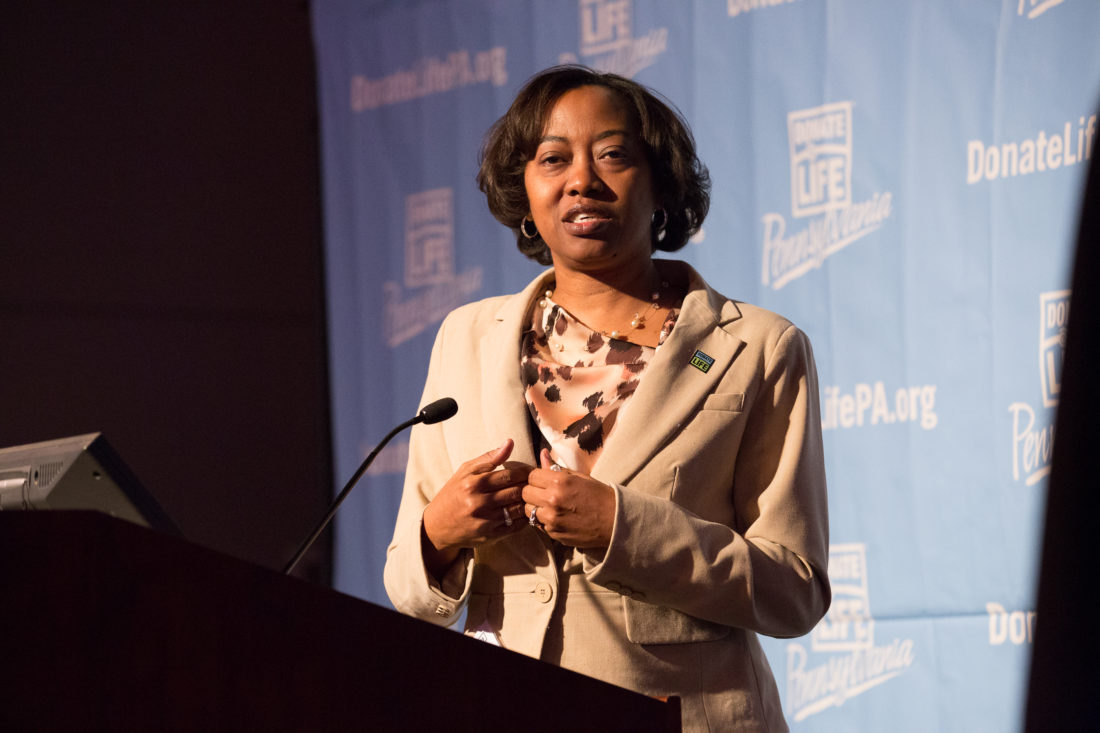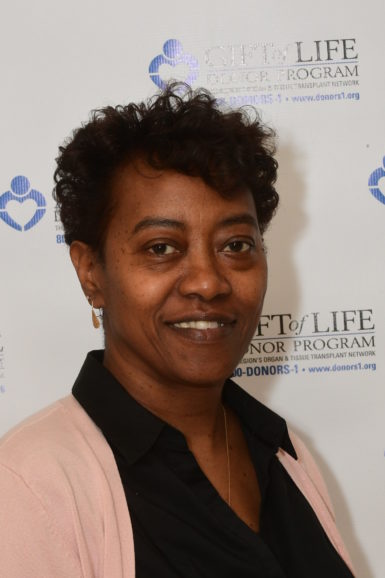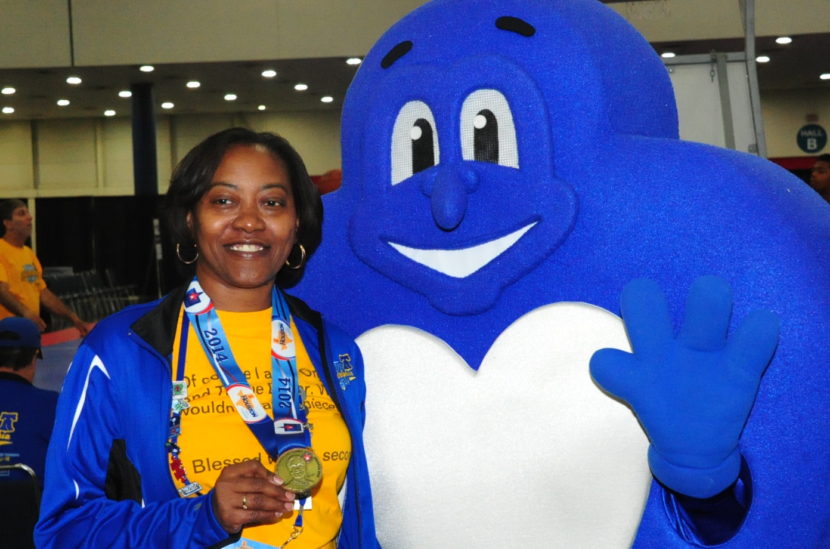
When Philadelphia native Laverne Clark was in elementary school she started having tightness in her chest, shortness of breath and leg cramping. She was examined by doctors, but they didn’t find anything wrong with her. It wasn’t until nearly a decade later at the age of 19 that she was diagnosed with an enlarged heart. She was advised to see a cardiologist, but waited six months because she was in shock and denial.
At 20, a cardiologist confirmed that she had a serious heart condition, and that a virus had destroyed her heart. Laverne never let her condition slow her down. She suffered from fatigue throughout her life due to her weakened heart, but continued to work as a hairdresser and a seamstress, where she hand-sewed beading on bridal dresses. She married and adopted a daughter because her heart condition prevented her from being able to carry a child. Her daughter, Tiffany, is now married with her own children.

Laverne continued to have health challenges. She took medication for her heart since she was 20. She developed an arrhythmia in her 30s, and got a pacemaker, which doctors told her would last 5 years. She went through two pacemakers in that amount of time, and her heart progressively deteriorated over the next several years. At 40 years old, doctors told her that her only option was to be added to the organ transplant waitlist.
“I tried to get by. I tried to keep pushing myself, but it got harder and harder.” said Laverne. “I couldn’t work anymore, and I was so tired. I had a lot of swelling – in my stomach and legs. I couldn’t even walk the steps in my house to go to the bathroom.” she said.
Laverne was making dinner when she received the call that there was a heart available for her. She had been waiting for over a year for a second chance at life. “I don’t think that I ever really thought I would get a heart. I didn’t have much hope at that point. My goal had been to live until my daughter was out of high school, and to make sure that she was grown. After that, I think I didn’t want to fight anymore. My husband and mother pushed me though. They told me that I had to do this – so I went to the hospital. My Aunt and her kids prayed for me and said the transplant was a gift I had to accept.” said Laverne.
It took some time before Laverne healed. Slowly, her energy increased. She started doing cardiac rehabilitation in the hospital and tried to walk to build strength. Since receiving her heart transplant over a decade ago, Laverne has gone on to participate and medal in the Donate Life Transplant Games of America, an Olympic-style event where transplant recipients compete to show that transplantation works. She is a regular participant at the Transplant Games, competing in the 100-meter run, the long jump and bowling.
“Words cannot express how grateful I am for my donor. I wrote to the donor family and made them a promise that I would educate others about my gift and how my life has been changed.” — Laverne Clark
“I’ve been able to do a lot since my transplant. I saw my daughter get married and have children. I’ve been able to travel. I volunteer for Gift of Life and do a lot of public speaking, which I never really felt comfortable doing before. Words cannot express how grateful I am for my donor. I wrote to the donor family and made them a promise that I would educate others about my gift and how my life has been changed.” said Laverne.

In the United States, 17 people die each day while waiting for a life-saving organ transplant. In Gift of Life’s region — eastern half of PA, southern NJ and DE — there are about 5,000 people waiting, and nationally more than 100,000 men, women and children are on the waitlist — approximately 28 percent of whom are African American. The chances for a successful transplant increase significantly when people of the same ethnicity are matched, so it is crucial that donors of all ethnic backgrounds register as organ and tissue donors.
During Black History Month, Gift of Life is promoting the stories of African Americans in the region who are waiting for organ transplants, who were donors or are donor family members, and those whose lives have been saved by organ donation. Through increasing awareness and education about donation and transplantation, more lives can be saved.
Give people like Laverne a second chance at life. Sign up to become an organ donor today.
